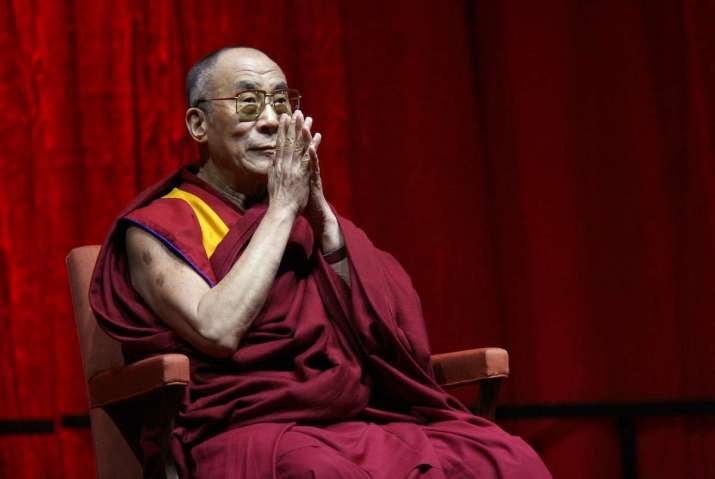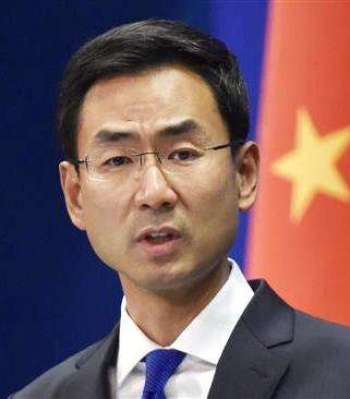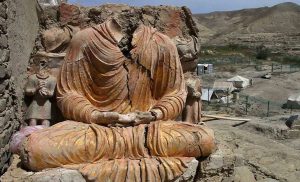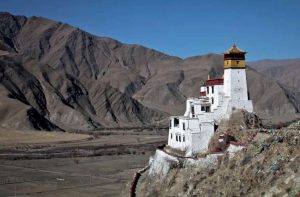
Responding to a recent statement by His Holiness the Dalai Lama earlier this week that his successor could be born in India, China’s foreign ministry yesterday reaffirmed the government’s position that recognition of the Dalai Lama’s reincarnation can only be approved by Beijing and must be subject to Chinese laws and regulations.*
“The institution of reincarnation of the Dalai Lama has been in existence for several hundred years,” said foreign ministry spokesperson Geng Shuang, speaking at a regular ministry press conference on Tuesday. “The 14th Dalai Lama himself was found and recognized following religious rituals and historical conventions and his enthronement was approved by the then-central government. Therefore, reincarnation of living buddhas, including the Dalai Lama, must comply with Chinese laws and regulations and follow religious rituals and historical conventions.” (Newsweek)
In 2007, China’s State Administration for Religious Affairs decreed that all Buddhist reincarnations born within China must obtain the approval of the government to be regarded as valid. Reincarnation applications must be approved by four different governmental bodies—the religious affairs department of the provincial government, the provincial government itself, the State Administration for Religious Affairs, and the State Council.
“Reincarnation is the unique way of Tibetan Buddhism. It has fixed rituals and systems. The Chinese government has a policy of freedom of religious beliefs. We have the regulation of religious affairs and regulations on the reincarnation of Tibetan Buddhism. We respect and protect such ways of Tibetan Buddhism.” (The Hindu)
Many of China’s more than six million Tibetans continue to honor the Dalai Lama, although Beijing has prohibited displays of his image and public demonstrations of devotion, maintaining that the Nobel laureate is a divisive element who encourages violence and separatist activity in ethnically Tibetan parts of China. However, His Holiness has repeatedly stated that he only wishes to see autonomy for Tibet while it remains a part of China.
In an exclusive interview with Reuters published on Monday, the Dalai Lama said that after his death, his next incarnation might be recognized in India, where he has lived in exile since 1959.

“China considers Dalai Lama’s reincarnation as something very important. They have more concern about the next Dalai Lama than me,” His Holiness said. “In future, in case you see two Dalai Lamas come, one from here, in free country, one chosen by Chinese, then nobody will trust, nobody will respect [the one chosen by China]. So that’s an additional problem for the Chinese! It’s possible, it can happen.” (Reuters)
The Dalai Lama also noted that the future role of the Dalai Lama lineage—including whether it will be maintained after his death—may be discussed during a meeting of senior Tibetan lamas and members of the Tibetan community in India later this year.
His Holiness has previously suggested that the lineage of the Dalai Lama could end when he dies. “The Dalai Lama institution will cease one day. These man-made institutions will cease,” His Holiness said in 2014. “There is no guarantee that some stupid Dalai Lama won’t come next, who will disgrace himself or herself. That would be very sad. So, much better that a centuries-old tradition should cease at the time of a quite popular Dalai Lama.” (BBC)
In a public statement in 2011, the Dalai Lama emphasized, “Reincarnation is a phenomenon which should take place either through the voluntary choice of the concerned person or at least on the strength of his or her karma, merit, and prayers. Therefore, the person who reincarnates has sole legitimate authority over where and how he or she takes rebirth and how that reincarnation is to be recognized. It is a reality that no one else can force the person concerned, or manipulate him or her.” (The Office of His Holiness the Dalai Lama)
Born in 1935 and now aged 83, the incumbent Dalai Lama was identified as the reincarnation of his predecessor when he was just two years old. The next Dalai Lama would be the 15th incarnation over a continuous period of about 500 years. The current 14th Dalai Lama escaped from Lhasa in 1959 after the Chinese People’s Liberation Army invaded Tibet, fleeing to India, which is now home to some 100,000 Tibetans living in exile.
* China Reasserts Authority on Dalai Lama Reincarnation (Buddhistdoor Global)
See more
China Says Dalai Lama’s Reincarnation ‘Must Comply with Chinese Laws and Regulations’ (Newsweek)
China rejects Dalai Lama’s assertion that his successor could be found in India (The Hindu)
Exclusive: Dalai Lama contemplates Chinese gambit after his death (Reuters)
Beijing: Reincarnation of Dalai Lama should follow Chinese law (CGTN)
Reincarnation (His Holiness the 14th Dalai Lama of Tibet)
Dalai Lama concedes he may be the last (BBC)
State Religious Affairs Bureau Order No. 5 (Wikipedia)












